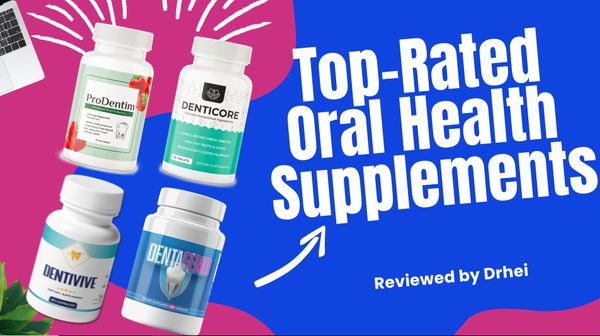The Strongest Natural Antibiotic for a Tooth Infection: A Simple Guide
Tooth infections can be excruciating and may lead to serious health complications if not treated timely. While antibiotics prescribed by a dentist might become necessary, some people also seek natural remedies to help kill the pain and fight infection.

In this article, We’ll explore some of the strongest natural antibiotics for tooth infections, their benefits, and how to use them safely.
What is a Tooth Infection?
A tooth infection, also known as a dental abscess, is a condition where bacteria enter the tooth’s inner parts, often as a result of tooth decay, gum disease, and cracked teeth. The symptoms include sharp pain in the tooth, swelling, raised body temperature, and a bad taste in the mouth.
While home remedies promote overall oral Health and can relieve symptoms, one needs to consult a dentist for appropriate diagnosis and treatment.
Why Go for Natural Antibiotics?
They can, in fact, turn out to be a very useful supplement to traditional treatments.

Most of them have fewer side effects, are easily available, and when used correctly, might even reduce the development of resistant bacteria. However, they cannot replace professional advice or treatment in serious conditions.
The Best Natural Antibiotics for a Tooth Infection
1. Garlic
– How it Works: Garlic consists of a compound called allicin that has very strong antibacterial and anti-inflammatory properties.
– How to Use: Crush a fresh garlic clove to release allicin. Apply it directly or mixed with a little salt to the tooth. You can also chew on a garlic clove if you can stand the taste/intensity.
2. Clove Oil
– How it Works: Clove oil contains eugenol, which serves as a natural anesthetic and antiseptic that helps to numb the ache and fight against the causative bacteria.
– How to Use: Dip a cotton ball in some clove oil and apply it to the infected area.
Note that you need to be careful not to swallow the oil due to its strong potency. You can dilute clove oil in some other carrier oil, for example, olive oil, and reduce the intensity.
3. Turmeric
– How it Works: Turmeric contains curcumin, which is known for its anti-inflammatory and antibacterial properties.
– How to Use: Mix the turmeric powder with water to form a paste.
Apply and leave it in the concerned area for some minutes before rinsing. You can also make a turmeric “tea” where you mix a teaspoon of turmeric powder with warm water and drink it.
4. Rinse with Salt Water
– How it Works: Salt has some natural disinfectant properties that may be beneficial in reducing bacteria and helping to heal the canker sore.
– How to Use: Mix one teaspoon of salt in a glass of warm water.
Gargle with the solution. Massage the solution vigorously inside the mouth, specifically in the infected area. Do this several times a day for optimum results.
5. Oil Pulling
– How it Works: Oil pulling involves washing your mouth with oil, usually coconut oil, which may help in reducing bacteria and inflammation.
– How to Use: Take one tablespoon of coconut oil and swish it inside your mouth for 15-20 minutes.
Spill out the oil into a trash can, not in the sink, since this will clog the pipes. Then, wash your mouth with warm water.
6. Oregano Oil
– How it Works: Oregano essential oil comprises carvacrol and thymol, which are strong antibacterial agents with anti-inflammatory effects.
– How to Use: Mix several drops of oregano oil with a carrier oil, such as olive oil.
Dip a cotton swab or your finger and apply it to the tooth that’s been giving you problems. Be careful not to use too much because the oregano oil can be very potent and may irritate if not diluted properly.
7. Ginger
– How it Works: Ginger is known to contain anti-inflammatory and antimicrobial properties that help alleviate pain and reduce infection.
– How to Use: Chomp on a tiny piece of fresh ginger or apply ginger paste straight onto your affected area.
You can also make ginger tea by steeping fresh ginger slices in hot water.
Safety and Precautions
Though some natural remedies can help in this regard, they can never compensate for professional dental care.

Some of the important considerations would be:
– Consult Your Dentist: Always consult with your dentist before trying natural remedies, especially if you have a severe infection or other health conditions.
– Allergies: Be aware of potential allergies. For example, some people are allergic to garlic or certain oils.
– Pregnancy and Children: Some natural remedies are unsuitable for pregnant women or small children. For instance, essential oils should be used with much caution.
– Moderation: Some natural antibiotics, like essential oils, might provoke irritation when used in excess.
When to Consult a Dentist
Remedies will soothe and support recovery, But they are not a panacea for these serious infections. Professional dental care is imperative to pursue immediately if you are experiencing any of the following symptoms:
– Severe pain that doesn’t improve
– Swelling in the face or neck
– Breathing or swallowing troubles
– Fever
– Pus drainage or foul taste in the mouth
Conclusion
Natural antibiotics can become an excellent addition to oral hygiene routines by relieving and supporting body self-healing processes. Used for centuries, garlic, clove oil, and turmeric have been helpful against various infections.
Always remember that all these remedies should be used in support, but never as a replacement for professional dental treatments. Consult with your dentist to get the best possible care in your situation.
Take good care of your teeth and gums. Brushing regularly and flossing, followed by frequent dental checkups, helps in the fight against infections and in maintaining a healthy, charming smile. Remember that while natural remedies are beneficial, they represent only a piece of good oral hygiene.